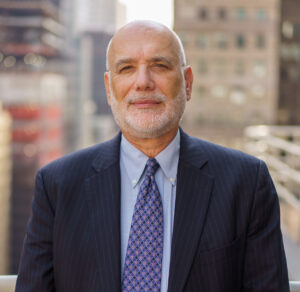The Supreme Court’s landmark decision in Students for Fair Admissions, Inc. (SFFA) v. President and Fellows of Harvard and SFFA v. University of North Carolina has dealt a gut punch to affirmative action in the college admissions process. It also will fuel lawsuits claiming reverse discrimination arising from Diversity, Equity, and Inclusion (DEI) initiatives in the workplace.
Equal employment opportunity is governed by different legal standards than university admissions. Indeed, it has always been the case that companies could not give preference to one race over another. In the workplace, voluntary affirmative action efforts are permissible only when they seek to remedy conspicuous racial or gender imbalances in traditionally segregated job categories, and they must be carefully tailored to avoid establishing quotas or inflexible goals. And there has never been a gray line when it comes to discrimination in employment, as Title VII of the Civil Rights of 1964 makes it unlawful for an employer to hire, discharge, limit, segregate, or classify employees or applicants for employment because of an individual’s race, color, religion, sex, or national origin.
The recent Supreme Court decision confirmed that race-conscious decisions aimed at remedying historical imbalances are not permitted in the higher education context. The majority opinion condemned an admissions process that “picks winners and losers based on the color of their skin.” The Court’s denunciation of “race-conscious” decision-making will be a game changer for corporate approaches to DEI in the workplace. Companies that have announced specific recruitment and retention goals may be laying the foundation for reverse discrimination claims. DEI initiatives are now under attack, and white male plaintiffs have been provided with plenty of ammunition by the Supreme Court and its mantra that decisions be colorblind.
DEI programs have already fueled a few recent reverse discrimination cases. In August 2022, a federal jury in North Carolina awarded $10 million to David Duvall, a white male executive, who claimed he lost his job due to efforts to diversify top leadership positions. Duvall, who was performing at a high level and exceeding performance expectations, alleged he was replaced by a white woman and a Black woman to increase gender and racial diversity among company executives. Similarly, Joseph DiBenedetto, a 58-year-old white male, claimed he lost his job at AT&T because the company was “doubling down” on its DEI efforts. According to DiBenedetto, AT&T’s DEI plan effectively biases hiring and retention decisions in favor of female and non-white candidates, who were disproportionately hired in the finance department where he worked. And in December 2022, the U.S. Court of Appeals for the Seventh Circuit reinstated the lawsuit of Diane Runkel, a 65-year-old white former city employee who alleged reverse discrimination. Runkel claimed she was denied a promotion when Langfelder instead promoted a Black candidate working under Runkel’s supervision. To support her claim, Runkel cited the mayor’s statement that hiring a black colleague exemplified his administration “moving towards reflecting the city demographics.”
The Supreme Court’s majority and concurring opinions in SFFA v. Harvard/UNC are chock full of nuggets for reverse discrimination claimants. Chief Justice Roberts wrote for the majority that “a benefit provided to some applicants but not to others necessarily advantages the former at the expense of the latter.” In his concurrence, Justice Gorsuch similarly observed, “it is never permissible to say ‘yes’ to one person but to say ‘no’ to another person even in part because of the color of his skin.” And Justice Thomas declared, “under our constitution, race is irrelevant.” Given this current legal landscape, employers must be cautious in creating and executing their DEI efforts to avoid creating a petri dish for reverse discrimination cases. The last few years have seen an uptick in reverse discrimination cases. Given that the Supreme Court has endorsed the concept of reverse discrimination, buckle up because the floodgates for reverse discrimination litigation are now wide open.
_____________________________________________________________________________________________________________
 Lou Pechman, an employment attorney in New York City, has 40 years experience handling all types of workplace litigation, including reverse discrimination claims. Mr. Pechman is an Adjunct Professor of Law at Fordham Law School where he teaches a class “Wage Theft: Employee Rights and Employer Responsibilities.”
Lou Pechman, an employment attorney in New York City, has 40 years experience handling all types of workplace litigation, including reverse discrimination claims. Mr. Pechman is an Adjunct Professor of Law at Fordham Law School where he teaches a class “Wage Theft: Employee Rights and Employer Responsibilities.”






